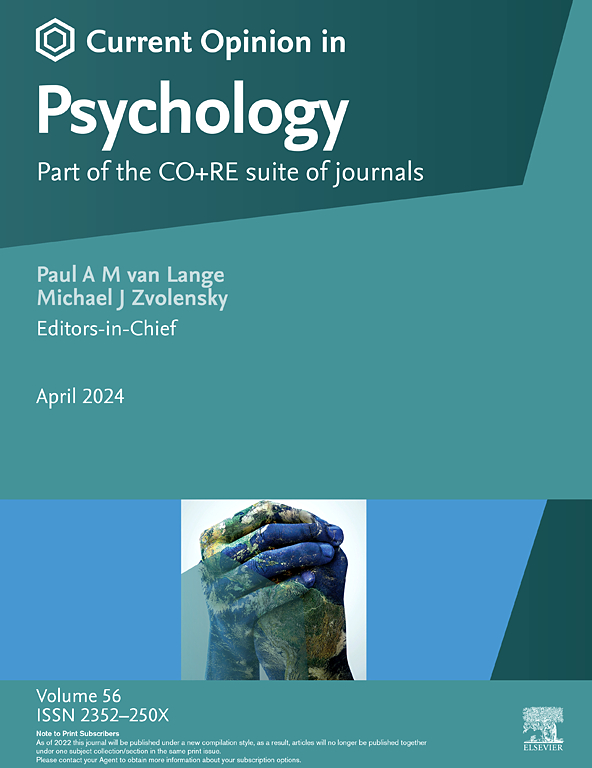被糟糕的身份蒙蔽:集体自恋的作用,认知封闭的需要和故意无知在助长群体间偏见和天主教徒和无神论者之间的敌意
IF 6.9
2区 心理学
Q1 PSYCHOLOGY, MULTIDISCIPLINARY
引用次数: 0
摘要
本文提出了一个理论模型,将集体自恋、认知封闭需求和故意无知作为驱动群体间偏见和阴谋信念的重要机制联系起来。该模型表明,以自恋方式强烈认同其群体的个体,有动机避免威胁群体内形象的信息,尤其是当他们也寻求认知确定性时。这种故意的无知保护了群体形象,强化了偏见。该框架对称地适用于宗教(天主教徒)和非宗教(无神论者)群体,突出了一种普遍的心理机制。相比之下,安全的群体识别可以缓冲这些影响。本文章由计算机程序翻译,如有差异,请以英文原文为准。
Blinded by bad identity: The role of collective narcissism, need for cognitive closure and willful ignorance in fostering intergroup bias and hostility among catholics and atheists
This article proposes a theoretical model linking collective narcissism, need for cognitive closure, and willful ignorance as important mechanisms driving intergroup bias and conspiracy beliefs. The model suggests that individuals strongly identified with their group in a narcissistic way are motivated to avoid information threatening ingroup image, especially when they also seek cognitive certainty. This deliberate ignorance serves to protect group image and reinforce prejudice. The framework applies symmetrically to both religious (Catholics) and non-religious (atheists) groups, highlighting a universal psychological mechanism. Secure group identification, in contrast, is posited to buffer against these effects.
求助全文
通过发布文献求助,成功后即可免费获取论文全文。
去求助
来源期刊

Current Opinion in Psychology
PSYCHOLOGY, MULTIDISCIPLINARY-
CiteScore
12.10
自引率
3.40%
发文量
293
审稿时长
53 days
期刊介绍:
Current Opinion in Psychology is part of the Current Opinion and Research (CO+RE) suite of journals and is a companion to the primary research, open access journal, Current Research in Ecological and Social Psychology. CO+RE journals leverage the Current Opinion legacy of editorial excellence, high-impact, and global reach to ensure they are a widely-read resource that is integral to scientists' workflows.
Current Opinion in Psychology is divided into themed sections, some of which may be reviewed on an annual basis if appropriate. The amount of space devoted to each section is related to its importance. The topics covered will include:
* Biological psychology
* Clinical psychology
* Cognitive psychology
* Community psychology
* Comparative psychology
* Developmental psychology
* Educational psychology
* Environmental psychology
* Evolutionary psychology
* Health psychology
* Neuropsychology
* Personality psychology
* Social psychology
 求助内容:
求助内容: 应助结果提醒方式:
应助结果提醒方式:


